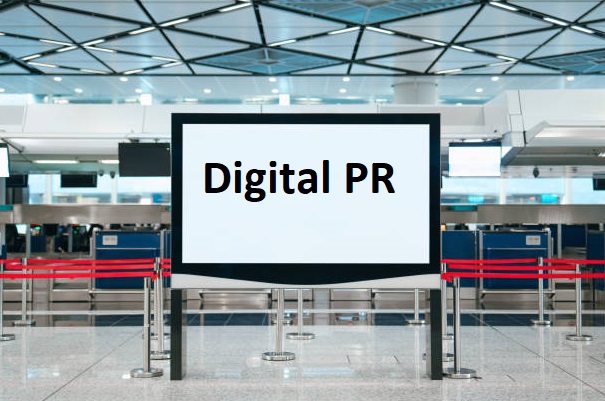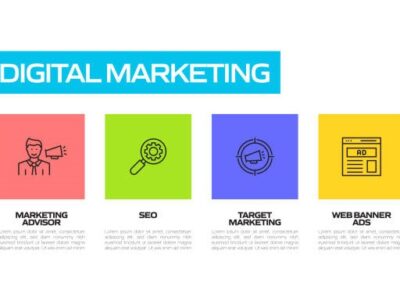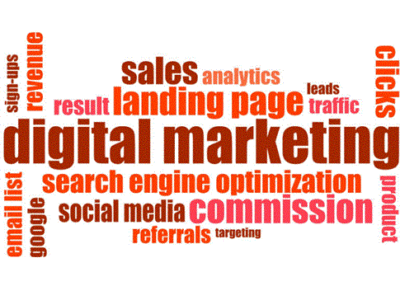Digital PR is the corporate professional upkeep of a positive internet presence. Using social media, websites, and online blogs, a digital PR agency markets a company.
Increasing online mentions, backlinks, and a company’s brand is the aim of a Digital PR strategy; all of these are even more important for the success of a brand today than they were in years past. As the Internet has gained traction, digital marketing PR has become somewhat well-liked. As businesses can use social media to reach a larger audience, digital PR has also grown along with its ascent.
We will discuss in this post the reasons for the need for a digital public relations strategy. We will also discuss the work of an SEO business and provide some samples.
What is Digital PR?
Traditional public relations is approached from a new perspective by digital PR. Digital PR, as opposed to its traditional form, concentrates on improving a business’s online presence to raise brand awareness and build trust with potential customers in the digital sphere. Traditional PR focused on media like print magazines, television, and radio.
Why Digital PR Is Important

Since it exposes a business to new target markets, digital PR is crucial. These introductions happen on editorial article placements on well-known websites and search engine results pages.
Additionally good for increasing website traffic for a business is digital public relations. Many times, media sources pick up digital news releases and use them as the source of fresh inbound links to a corporate website. These links enhance the search engine optimization of the website, therefore facilitating the finding of the business by possible consumers online.
Digital PR Vs. Traditional PR
Traditional PR entails building relationships with reporters to be included in print magazines. A publicist specializing in traditional PR once aimed to use contact to either crisis reputation management or promotion of their clients—that is, in media (e.g., newspapers, magazines, radio, and television).
Though classic techniques of PR are still employed successfully today, most conventional PR experts have evolved to embrace digital PR – often finding better readerships or viewership in online content.
Valerie Turgeon developed the well-known “PESO media model for PR” to illustrate the several media outlets that PR professionals could aim at.
Sing Digital PR gives companies chances to:
- Interviews in Internet publications
- Boost your web presence.
- Use social media’s power to propel brand recognition and expansion.
What Does Digital PR Involve?
Given billions of people engaged online, companies must embrace digital channels for public relations campaigns.
Good digital PR firms mix the best of conventional PR with an emphasis on trends in content marketing, SEO, and social media marketing. A digital PR specialist employs a range of strategies to raise the profile of a business or client such as:
- designing and distributing news releases
- Developing contacts with bloggers and internet reporters
- arranging internet interviews and evaluations.
- Make sure press releases maximize pertinent links to your website.
- Developing relationships or obtaining mentions on powerful social media profiles and blogs via influencer marketing and blogger outreach
- publishing web material to establish a better name and strong backlinks
What are the Benefits of Digital PR?
Starting a digital PR campaign is meant to raise online presence and brand awareness. Establishing your online persona and what distinguishes your brand can be much improved with a concentrated effort.
Here are some ways digital PR may help your brand:
- Boost website traffic – More people will visit your website after your brand comes up more often online.
- Improve SEO and search ranking score – Your SEO rating for your target keywords will rise when your material is posted on high-authority sites linking to your website.
- Establish a company as an authority – Publishing excellent papers on authority websites will help you establish credibility as a reliable information source and boost confidence.
- Generate earned links – Using digital PR will enable you to receive earned rather than paid highly qualified remarks online.
- Generate leads and sales – Once your brand is referenced more often, you will create leads from website visitors that result in more sales.
- Improve your brand image and increase trust – Your target market will start to see more favorable client reviews and hear more great things about your business.
- Easily track success – Using UTMs or tracking tools lets you understand how your PR effort is doing, unlike conventional PR which is sometimes targeted at a wide audience and difficult to evaluate.
- Be cost-effective – One advantage of PR is it doesn’t have to destroy the planet. One could generate momentum with a basic press release or by contacting a seasoned blogger or writer.
Types of Digital PR
A digital marketing PR agency could apply several strategies depending on the desired outcomes. These strategies are sometimes classified in SEO terms as “white hat” vs “black hat” vs “gray hat.”
Here are several common forms of Digital PR:
- Unlinked Mentions: Notes referencing your company name that lack a link to your website.
- Guest Posts: Authoring and publishing a piece on another person’s website.
- Directory Inclusions: Including your business website in a directory containing other such businesses.
- Press Releases: Noting newsworthy announcements to guarantee press coverage.
- Influencer marketing: Having references on a strong social media presence.
How to repurpose your content for PR
Content marketing should be rather heavily included in a digital PR campaign. Your reputation and authority start to develop more the more your material is shared and discovered.
Repurposing allows you to convert already written material into several content forms and distribute or publish it on other media. One blog post, for instance, might be used in multiple forms including:
- Infographic
- Expanded guest blog
- An article in the local newspaper
- Article in a trade publication
- LinkedIn article
- Social media post
- Short video
One piece of material can thus be turned to serve several sources that can be shared to assist develop your reputation. It’s not only changing the material; you also keep providing value and supporting your voice as an authority.
How to use social media for PR
In a digital PR effort, social media is among the few tools more effective. Social media allows you to interact with consumers and influencers, research competition strategies, and always participate in discussions about your specialty.
As you keep producing excellent material and publishing it, keep pushing it on social media platforms and inspiring others to share and forward it. Provide value and knowledge worthy of conversation and sharing.
Best advice for applying social media for public relations
Recall that PR is mostly concerned with enhancing the trustworthiness of your company. The top advice for PR on social media is:
- Integrate PR into other activities: Make sure your PR plan aligns with all of your social media activity—including hashtags and keywords.
- Integrate offline and online events: Share offline and online activities before, during, and following using social media. After the event, follow-up entries can compile salient features and be shared and discussed.
- Use live tweeting: This can offer feedback and inspire participation in both physical and digital gatherings.
- Livestream events: Organize real-time events using social media platforms such as LinkedIn Live and Instagram Live to provide material for the next PR and marketing campaigns.
- Vary the events: Combine the kinds of events you provide—webinars, podcasts, livestreams, etc.—to add value and intrigue.
- Co-host: To boost effect and reach, think about co-hosting events with other companies or participating in events unique to your industry.
- Connect with others: Make sure you follow pertinent companies and people from events and other public relations efforts.
- Coordinate with others: For every press release, coordinate your social media engagement with partners and reporters.
- Prepare for a social media crisis: Having a social media crisis management strategy in place helps one to consider the possible drawbacks of a public relations effort.
How can marketing and digital PR work together?
While leads and revenue define marketing, PR stresses creating a positive impression of your brand.
Digital PR wants to spread the word about what your brand stands for and what distinguishes it. It seeks to raise brand authority and visibility to produce good brand recognition.
Before marketing may be successful, relationships and reputation must be developed. Digital PR and marketing should thus cooperate, each approach enhancing and complementing the other.
How to start a digital PR campaign

Starting your digital PR either from your own company or from a digital PR agency is crucial. Once you start developing your brand by using internet channels, you may examine what is working and what isn’t and, if needed, adjust.
How then should you get going?
- Know your target audience – Find the people eager for your brand and its message using polls and social media interaction. Moreover useful will be the creation of several buyer personas.
- Set your goals – Track and know your KPIs for your digital PR operations.
- Build key relationships – Establish ties with prominent bloggers and influencers in your field to create authoritative material through data analysis and application.
- Brainstorm ideas – To get through the online noise, how can you say what you want? Content ideation is difficult but crucial. Getting that correctly will boost engagement. Include research at this point to ensure your message is factual and relevant.
- Look at your resources – Your digital PR time may determine whether you do it yourself or outsource. Outsource your digital PR if your time is limited.
By applying more digital PR strategies, you will be more likely to establish brand recognition and successfully grow your business.
VIEW ADDITIONAL POSTS
Digital Marketing for Financial Advisors: A Comprehensive Guide
How best to evaluate the effectiveness of a digital PR effort?
One of the primary advantages of digital PR is its quantitative and trackable character. This allows you to observe both successful campaigns or messages as well as ones that fail.
To evaluate and document performance, though, what criteria should you apply?
- Clicks – Should an article or post contain a link, you can follow it to view activity on a landing page.
- Links – Find out the quality of the links your work got as well as their count.
- Social shares – How many times—by whom—was the campaign or story shared on social media?
- Leads or Revenue – Could you credit the marketing for any leads or income? Looking in GA4 at the first or last page visited will help you to see this or create an “Event” target. Alternatively, did income rise when the campaign started or ran?
- ROI – Was the campaign’s return on investment reasonable? This could be visibility, money, brand sentiment, or site traffic.
Your digital PR plan should ultimately focus on offering your audience helpful and educational material. Furthermore, you should make sure your material is included in the SEO strategy and content pillars for the larger company.
If you want morе еxciting contеnt visit. Globallyviz.com














Comments